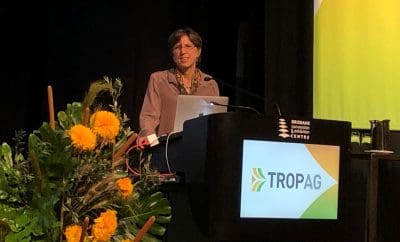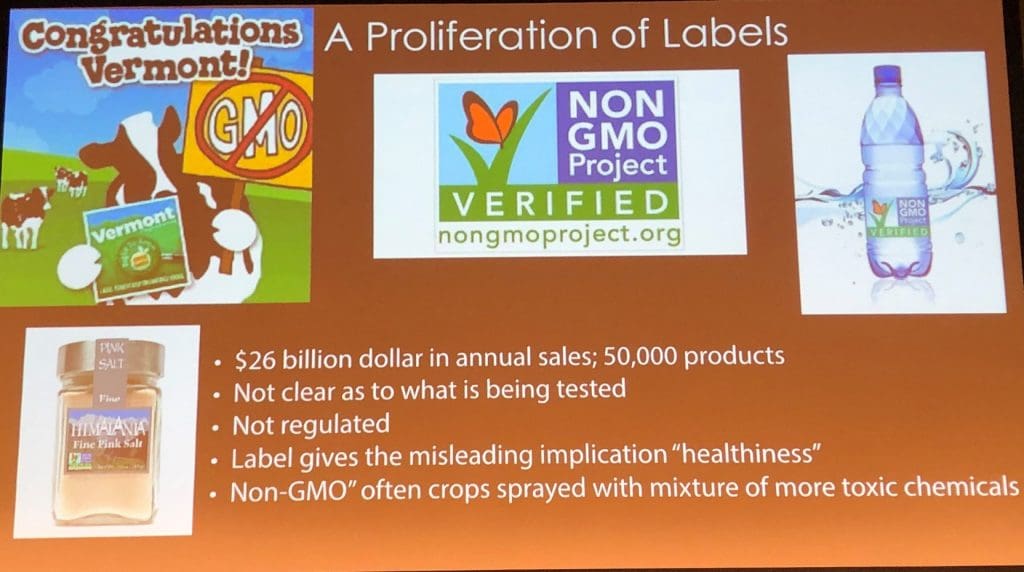DESPITE broad scientific consensus that genetically modified (GMO) food is safe, there has been a proliferation of product labels seeking to cash in on consumer concerns, according to University of California Institute for Food and Agricultural Literacy founding director, Professor Pamela Ronald.

Professor Pamela Ronald told the TropAg conference in Brisbane there has been a proliferation of product labels seeking to cash in on consumer concerns about GMOs.
Professor Ronald, who has been at the forefront of global work genetically engineering crops for resistance to disease and environmental factors, made the point in her keynote address to the International Tropical Agriculture (TropAg) conference in Brisbane today.
She told the gathering of world agricultural scientists that consumers were being duped by some of the GMO labelling on foods in the United States at the moment.
“A common one is ‘non-GMO project verified’ which has been applied to many products, including those that would never even be considered for genetic modification,” she said.
“That label is a nice marketing advantage because you can mark up your product as ‘non-GMO’. It has been placed on water and salt which has become very expensive. This label is on 50,000 products, most of which have no counterparts that are genetically engineered. In about eight years, it has documented US$26 billion in annual sales.
“It is not even clear what is being tested if you download the technical datasheet which says “We are testing for GMOs using PCR”. There is no primary information, there are no controls, no data and it is not regulated. I don’t think consumers fully understand it is just a random label.”
Professor Ronald said such labelling, which also gave a misleading implication of ‘healthiness’, was an obvious marketing ploy aimed at consumers.
“What is very disappointing is not only are consumers paying more for something that is meaningless, but also many farmers are now moving to so-called non-GMO crops and going back to older technologies where they are spraying older and more toxic compounds. I think the consumer fundamentally doesn’t understand what the farmer is doing,” she said.
Professor Ronald said after 20 years of careful study and rigorous peer review by thousands of independent scientists, every major scientific organisation had concluded that the crops currently on the market were safe to eat and the process of genetic engineering was no more risky than older methods of genetic modification.
“These are the same organisations that most of us trust when it comes to other scientific issues such as global climate change and the safety of vaccines,” she said.
“It’s important for us to convey the scientific process and emphasise that you can’t pick and choose your science – these are the same organisations making these conclusions.”
Professor Ronald said instead of worrying about the genes in food, society should be focussed on enhancing food security for the people of the world, minimising environmental degradation, reducing toxic inputs, keeping food affordable and keeping farmers in livelihoods.
“What scares me most about the loud arguments on plant genetics and the spread of misinformation is that the poorest people who most need access to the technology may be denied access because of the vague fears and prejudices of those who have enough to eat. So, there is a huge challenge in front of us,” she said.




HAVE YOUR SAY